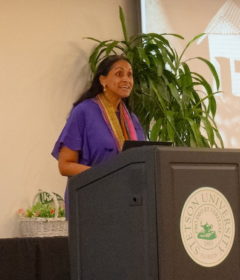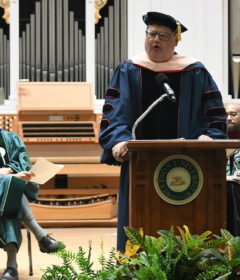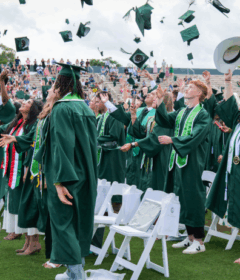Visiting Professor, Student Publish Paper on Dobbs Decision
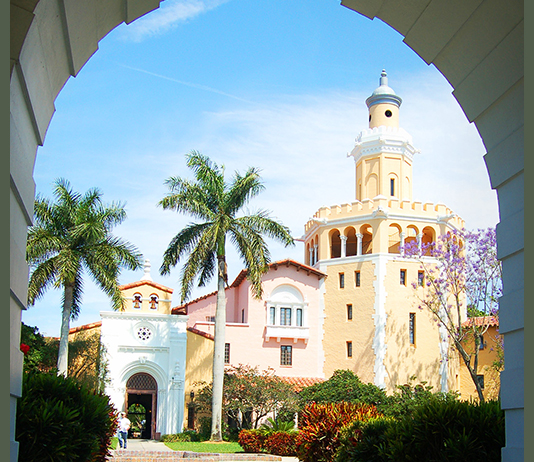
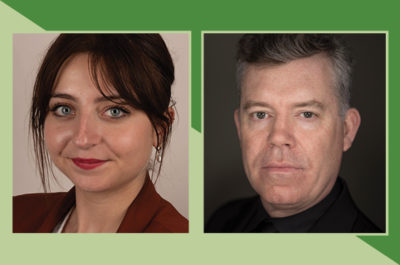
A visiting professor and a recent alumna spent much of the summer developing a sharp piece of analysis on one of the biggest U.S. Supreme Court decisions in recent memory.
The article’s title is A Comparative Law Guide to a post-Dobbs America and it is set to be published in the Cardozo Journal of Social Justice and Equal Rights. Looking at how civil law and common law can create differing outcomes when it comes to abortion rights, is currently in the editing process.
Even prior to the leaked draft Supreme Court opinion that preceded the decision itself, then-student Flore Foulon spoke with Visiting Law Professor James Hart during his office hours near the end of the Spring 2022 semester. She had expressed an interest in writing a paper about abortion and bodily autonomy through a comparative law lens.
Foulon, who has studied law in three countries, said what inspired her to pursue the article was “the fascinating legal framework in different jurisdictions.”
“Writing an article using comparative law to delineate possible outcomes seemed the most logical approach following my education,” she said. “I am passionate about comparative law and this article is a good illustration of inspirations one can derive from it.”
Hart said he co-authored his first post-law-school article with his Constitutional Law professor at University of Denver Sturm College of Law, Jan Laitos, which made collaborating with a student even more meaningful for him.
Collaborating from afar
Working over the summer – Hart from his home in Denver, where he is finishing his career as a violinist with the Colorado Symphony and Foulon from Paris (“utterly unfair!” Hart jokes), the two split their analysis down the middle. Foulon, who has a deep understanding of civil law, took on that portion while Hart covered the common law side.
As the Dobbs decision came down, a side-by-side look at how civil and common law determine the extent of abortion rights and access to reproductive care made the most sense to the pair. Hart explains that the main difference between the two systems is that in common law systems, it is the judiciary that makes law through legal outcomes that create precedents, which guide future case outcomes. Civil law systems, meanwhile, involve a legislative body that creates policy through statutes and other measures.
Comparing the two systems as they relate to the current abortion-rights landscape made sense.
“I felt that the comparative law angle was especially relevant, as once the Dobbs decision came out, the field of battle had shifted from the Court(s) to the Congress and state legislatures,” Hart said. “This made civil law legal systems instantly more relevant to a post-Dobbs America.”
Meaningful mentorship
Foulon said it feels surreal to be published for the first time and that she greatly appreciates the opportunity.
“Being an international student, I often suffered a little from the imposter syndrome. However, it feels extremely gratifying to see my work being published,” she said. “I have a genuine passion for law and research and being published for the first time feels like the consecration of this passion. I am extremely grateful for Professor Hart to have written this article with me as it exceeded all the expectations for the article I had in mind when I first walked into his office.”
Of his former student, Hart said Foulon’s research and writing were extraordinary and that it reminded him of his collaboration with Professor Laitos. It was interesting to be on the other side of the mentor-mentee dynamic, he said – and that he couldn’t have picked a better mentee.
“One of the most meaningful aspects of being a law professor is watching your students become your colleagues as the years pass. I was so pleased that this collaboration worked out,” he said. “There is a wonderful Latin phrase, Docendo Discimus; to teach is to learn. That sums up my collaboration with Flore better than anything I could say.”
Hart will be returning to Stetson Law in January to teach Constitutional Law and a related seminar over the Spring 2023 semester.
-Kate Bradshaw
[email protected] | 727-430-1580

